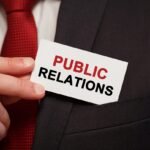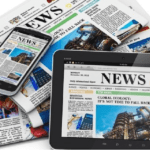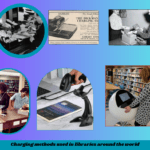Information is a comprehensive thing. Everything we publish is information. Information is something that can be changed and strengthened. Language can be written, but its essence cannot be changed. Information awakens people’s sense of perception. That is why it is said that information or documents are the required arrangements of events; newspaper reports, newspapers, books, etc. are documents or information materials. The need for information in modern society is vast. Data is created to achieve a particular objective for some researchers.

Image Credit: https://pixabay.com/
Example:
Giving knowledge or being informed by others about a subject or object is a prerequisite for making correct decisions. Collection and supply of correct and accurate information can be clarified with the help of the following example: Let us say: “Food problem and solution” of a country. The government needs to make decisions through a program of the state and know the details about the issue.
-Population of the country
-Determination of birth and death rate
-Amount of land suitable for agriculture
-Soil quality
-Irrigation, fertilizer facilities
-Concepts of crop quality
-Knowledge of climate
-Determination of cultivation methods
-Number of landless people
-Crop yield, etc.
At the state level, research staff projects are developed by spending a lot of money to solve it. Providing accurate information to engaged researchers speeds up research. In this case, the experience and information of other countries can be used. This avoids repetition of research and waste of time, money and effort. So it appears that the prerequisite for making the right decision is the collection and delivery of the right information. A study by the USDA (United States Department of Agriculture) showed that researchers assigned to their department spent 13% of their research time on research-related data collection. From this, we understand how important it is to collect information on the subject in research or in making the right decision on any subject.
Information plays an important role in decision making on the following issues:
- In Science & Technology:
Information is the foundation for innovation and advancement in science and technology, directing decision-making throughout the entire research and development process. To create hypotheses, plan experiments, and reach conclusions, scientists and technologists rely on data and evidence. Information makes it easier for researchers to collaborate and share knowledge, which encourages interdisciplinary approaches to difficult problems. Gaining access to trustworthy information speeds up the process of discovery and makes breakthroughs possible in a variety of industries, including renewable energy and healthcare. In science and technology, sound interpretation and synthesis of data are essential for making decisions that will drive advancements that will influence society in the future.
- In Sociology:
Information is essential to sociology because it helps with pattern recognition, comprehension of social phenomena, and interpretation of human behavior in various settings. To support their theories and hypotheses, researchers collect data using a variety of techniques, including surveys, interviews, and observations. Identification of social issues, policy formulation, and implementation of interventions targeted at advancing social change and enhancing well-being all depend on information.
- In term of Climate:
Understanding the current state of the climate, predicting future trends, and evaluating the effects of climate change all depend on information when making climate decisions. To inform policies, strategies, and adaptation measures targeted at reducing climate risks and promoting resilience, decision-makers rely on scientific data, models, and observations. Having timely and accurate information at their disposal enables decision-makers to address the intricacies of climate change and protect economies, communities, and ecosystems.
- In education and culture
Information is essential to the creation of curricula, pedagogical strategies, and cultural preservation initiatives in education and culture. Teachers use information to create lesson plans, create learning resources, and evaluate students’ progress efficiently. Information also makes it easier for cultural heritage to be preserved and passed down, giving people the opportunity to interact with a variety of viewpoints, customs, and artistic expressions during their educational journeys.
- In Research
Data is the foundation for new knowledge creation, hypothesis testing, and the advancement of scientific understanding in research. To inform their findings and draw conclusions, researchers draw on data from a range of sources, such as observational studies, experiments, and literature reviews. Decision-making processes in the academic, scientific, and professional communities are guided by the availability of pertinent and accurate information, which raises the caliber and legitimacy of research findings.
- In technical terms
Information plays a vital role in technical decision-making. Engineers and technicians depend on data obtained from simulations, experiments, and technical specifications to assess risks, optimize processes and systems, and solve problems. Access to precise and current information helps to improve efficiency, reliability, and safety in technical decision-making processes.
- In terms of treatment
Information is crucial for diagnosing conditions, choosing the best interventions, and tracking patients’ progress when making treatment decisions. Medical professionals use patient histories, clinical data, and published literature to make evidence-based decisions tailored to each patient’s needs. The provision of high-quality care is ensured, treatment efficacy is increased, and patient outcomes are enhanced through timely and accurate information access.
In general, information provides clarity, insights, and evidence-based reasoning, which form the basis of effective decision-making. It gives decision-makers the confidence and accuracy to navigate complex situations, reduce risks, and grab opportunities.



